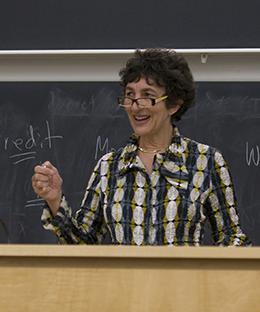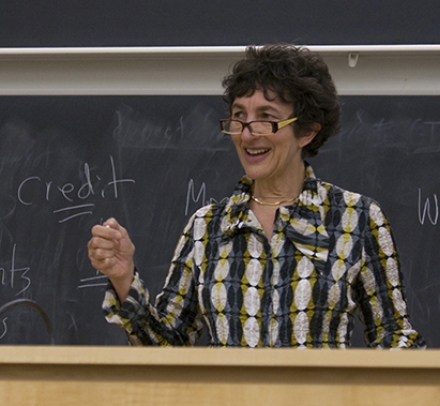
Carol Sanger
- Barbara Aronstein Black Professor Emerita of Law
J.D., University of Michigan, 1976
B.A., Wellesley College, 1970
Contracts
Family Law
Abortion Law

J.D., University of Michigan, 1976
B.A., Wellesley College, 1970
Contracts
Family Law
Abortion Law
An award-winning teacher and influential scholar of reproductive rights, Carol Sanger writes and teaches courses on contracts, family law, the legal profession, and law and gender. Her most recent book, About Abortion: Terminating Pregnancy in the 21st Century, addresses the regulation of abortion and maternal conduct, surrogacy, and the law’s relation to culture. She is also a co-editor of the Cases and Material on Contracts (8th edition) and other books.
Since joining the Columbia Law School faculty in 1996, Sanger has been recognized for her dedication to students and teaching: She has received the Law School’s Willis L.M. Reese Prize for Excellence in Teaching, Columbia University’s Presidential Teaching Award, Social Justice Initiatives’ Outstanding Public Interest Faculty Member of the Year, and the Columbia Law Women’s Association’s Myra Bradwell Award for her commitment to mentoring female law students.
Sanger began her law career in San Francisco as a commercial litigation associate in private practice. She first taught at the University of Oregon Law School and then Santa Clara University. Sanger has also been a visiting professor at Harvard Law School, Stanford Law School, the University of Hawaii at Manoa, and the University of Oxford, where she was elected an honorary fellow of Mansfield College in recognition of her “world-renowned scholarship in the common law of contract, women’s rights, and research in human rights law.”

Stigma and hostility has stifled women’s willingness to talk about abortion, which in turn distorts public and political discussion. To pry open the silence surrounding this public issue, Carol Sanger distinguishes between abortion privacy, a form of nondisclosure based on a woman’s desire to control personal information, and abortion secrecy, a woman’s defense against the many harms of disclosure.

The conservative majority may try to thread the needle and allow new restrictions on abortion without overturning Roe v. Wade, the Columbia Law School professor says.